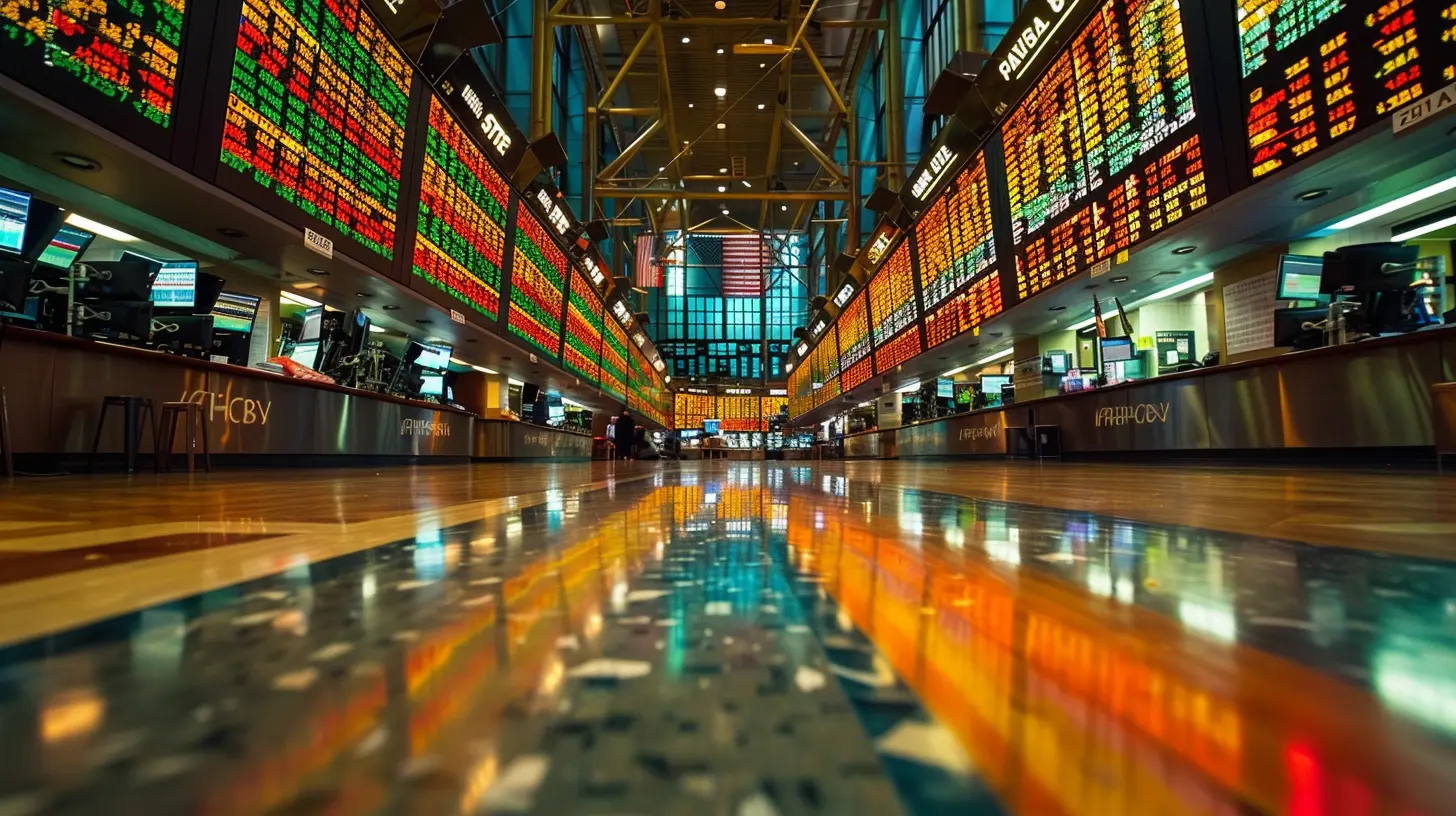The Role of Retail Investors in Today’s IPO Market
23 October 2025
When a hot new company goes public, it's like a red carpet event in the financial world. Everyone wants in on the action—including retail investors. But what's really going on when average folks like you and me try to grab a piece of the IPO (Initial Public Offering) pie? Are retail investors making a difference, or are they just being swept along for the ride?
In this post, we’re diving deep into the crucial—and growing—role retail investors play in today’s IPO market. Get ready for a friendly, no-jargon breakdown of how things work, how they’re changing, and what it means for your wallet and the market at large.

What Is an IPO, Anyway?
Let’s start with the basics, just to make sure we’re all on the same page.An IPO, or Initial Public Offering, happens when a private company sells its shares to the public for the first time. Think of it like a coming-of-age party—except instead of cake and awkward speeches, there’s stock, and lots of hype.
Companies go public for a bunch of reasons: to raise capital, provide an exit for early investors, or increase visibility. And when that IPO bell rings, both institutional and retail investors line up to buy shares. But there’s a catch: not everyone gets the same shot at grabbing them right out the gate.

Historically, IPOs Were an Exclusive Club
For years, IPOs were the playground of big institutional investors—think hedge funds, investment banks, and mutual funds. Retail investors? They were mostly stuck on the sidelines, getting in only after share prices shot up post-IPO.Why? Because IPO shares were typically allocated through underwriters (usually large investment banks), who handed them out to their biggest, most important clients first. If you weren’t a VIP, you were late to the party—and had to pay a premium.
But the game has changed. Slowly but surely, retail investors are getting a seat at the IPO table—and it’s shaking up the market in a big way.

The Rise of the Retail Investor
So what’s driving this shift? Simply put, retail investing has exploded—thanks to technology, zero-commission trading apps, and a new generation of investors who aren’t afraid to take the helm.1. Tech Has Leveled the Playing Field
Apps like Robinhood, Webull, SoFi, and Public have made investing as easy as scrolling through your phone. You can get IPO access with a few taps, no fancy broker needed. Suddenly, an opportunity that once required connections now just needs a smartphone.These platforms even offer allocation of IPO shares to retail users before they hit the open market. That’s huge. It means regular people can buy in at IPO prices, rather than watching prices spike and buying in late.
2. The Meme Stock Mentality
Remember GameStop? AMC? Those weren’t traditional institutional plays. Retail investors joined forces, rode the hype train, and proved they could move markets. That energy—part rebellion, part opportunity—has carried into the IPO scene.Retail investors are more informed, more organized (hello, Reddit), and more aggressive than ever. They’re not just watching; they’re participating, questioning, and influencing the IPO game.
3. Pandemic Effect
During the pandemic, millions of people started investing for the first time. With stimulus checks, more time at home, and volatile markets, retail interest soared.Many of these new investors were drawn to IPOs for the chance to “get in early” on the next Amazon or Tesla. And companies—and trading platforms—took notice.

Why Companies Are Now Wooing Retail Investors
It used to be that companies courting IPO investors only had eyes for Wall Street heavyweights. But now retail investors are not just welcomed—they’re being actively courted. Here’s why:A Bigger Pool of Capital
Retail investors collectively manage trillions of dollars. Sure, individually we’re small, but together? We’re a force. Companies know that tapping into that crowd can bring in serious money on IPO day.Creating Loyal Customers
Want to build instant brand loyalty? Let your customers become shareholders. Companies like Airbnb and Sweetgreen made headlines by reserving IPO shares specifically for their users and fans. It’s smart—shareholders are more likely to support the company and stick around long-term.Democratizing Finance (And Getting Good PR)
Offering IPO access to retail investors isn’t just about money—it’s also great PR. It paints the company as fair, modern, and in tune with the times. In a world where financial transparency and accessibility matter, that’s a good look.Pros and Cons of Retail Investors in IPOs
Adding more retail investors into IPOs definitely changes the landscape—but it’s not all sunshine and rainbows. Let’s talk about both sides.The Good:
✅ More Access for All: Anyone with a smartphone and some cash can now participate in IPOs. That’s a win for financial inclusion.✅ Market Democratization: Wall Street no longer has a monopoly on IPOs. Power is spreading—and that’s healthy for markets.
✅ Loyalty and Engagement: When regular people become investors, they care more. That keeps companies accountable and customers engaged.
The Not-So-Good:
⚠️ Volatility: Retail-driven IPOs can experience wild price swings. Emotions, hype, and FOMO (fear of missing out) can drive prices up—or down—fast.⚠️ Inexperience: Many retail investors are new to the game. IPOs can be tricky, and jumping in without understanding the risks can be dangerous.
⚠️ Hype Over Fundamentals: Just because something’s hot doesn’t mean it’s valuable. Retail investors sometimes elevate flashy companies that don’t have solid financials.
How Are IPOs Changing to Accommodate Retail Investors?
Companies and brokers are waking up to this retail revolution. We’re seeing shifts in how IPOs are structured, communicated, and distributed.Direct Listings and SPACs
Some companies are skipping the traditional IPO route altogether. Instead of relying on underwriters, they’re going direct (through direct listings) or merging with SPACs (Special Purpose Acquisition Companies). These methods often allow more open access—and that includes retail investors.Reserved Shares
As mentioned earlier, companies like Airbnb and Robinhood are reserving IPO shares specifically for retail investors. It’s a growing trend that gives average investors a foot in the door.Better Education
With more retail participation, we’re seeing an increase in investor education. Platforms now provide IPO breakdowns, risk summaries, and even Q&A sessions with executives. That’s a far cry from the old days, when IPO investing felt like an insider-only club.What Retail Investors Should Keep in Mind
Thinking about dipping your toe into IPO waters? Awesome. But before you do, here are some tips to avoid rookie mistakes:1. Do Your Homework
Don’t just invest because everyone’s talking about it. Read the S-1 (the company’s IPO filing), check out their financials, understand the risks. If that sounds boring—well, investing isn’t all glitz and glam.2. Watch Out for Lock-ups
Not all shares are created equal. IPO insiders usually have a “lock-up” period where they can’t sell their shares for 6 months post-IPO. Guess what? When that period ends, a flood of shares might hit the market—and prices can drop fast.3. Prepare for Volatility
IPOs can be roller coasters. Prices might soar the first day, then crash the next. Unless you're planning to hold long-term, be cautious with how much you invest.4. Think Long-Term
The real winners in IPO investing are usually those who hold onto quality companies for years—not those flipping for a quick buck. If you believe in the company’s mission and potential, it’s often smarter to stay buckled in for the long haul.
The Future of Retail in IPOs
The trend is clear: retail investors are here to stay. As platforms evolve, regulations adapt, and companies continue to embrace transparency, expect to see even more retail participation in the IPO landscape.And maybe that’s a good thing. After all, the stock market was never meant to be an exclusive club. Everyone deserves a chance to grow their wealth, take informed risks, and be part of the financial story.
Final Thoughts
The role of retail investors in today’s IPO market is no longer a side story—it’s the main event. From being pushed aside to now shaping trends, retail investors have become key players in how companies go public.Sure, it’s not without its challenges (volatility, inexperience, and the occasional meme-fueled frenzy), but it’s also opened the door to a new era of opportunity and inclusion. Whether you're a newbie investor or a seasoned trader, understanding this shift can help you navigate the IPO world smarter and more confidently.
So, next time a buzzy IPO hits the headlines, remember—you’ve got more power than ever to be part of the action.
all images in this post were generated using AI tools
Category:
Ipo InsightsAuthor:

Zavier Larsen
Discussion
rate this article
1 comments
Georgina Holland
Retail investors bring fresh perspectives to the IPO scene!
October 23, 2025 at 2:40 AM

Zavier Larsen
Absolutely! Retail investors often challenge traditional views and contribute to a more diverse marketplace, enhancing overall engagement and innovation in the IPO landscape.


